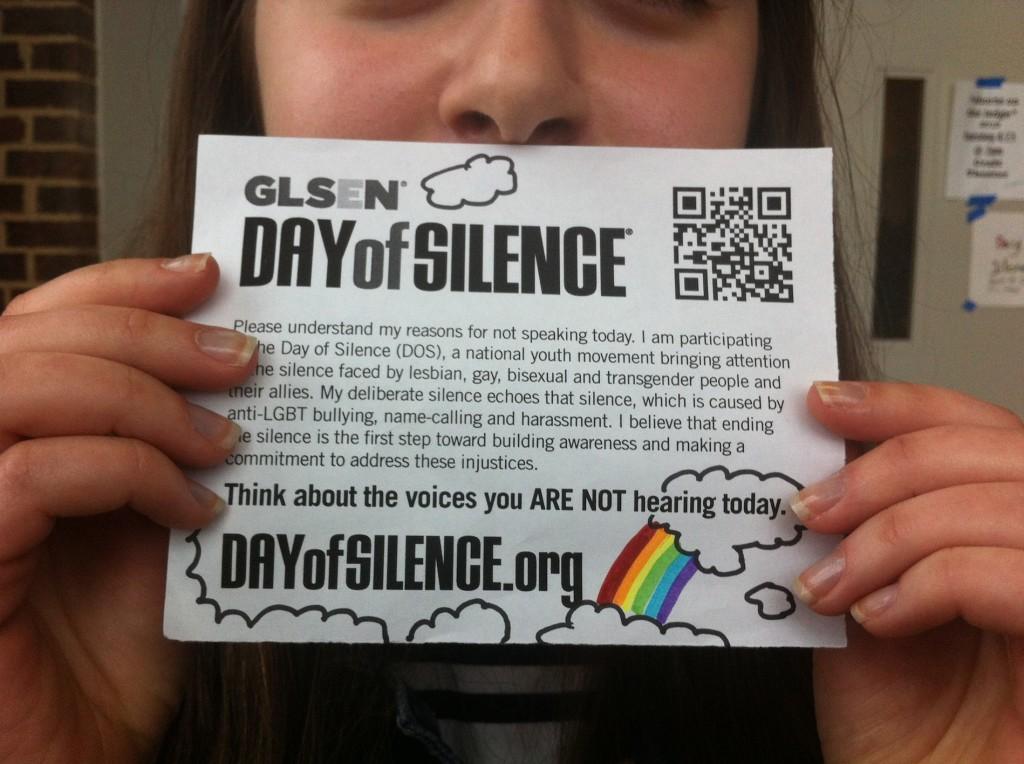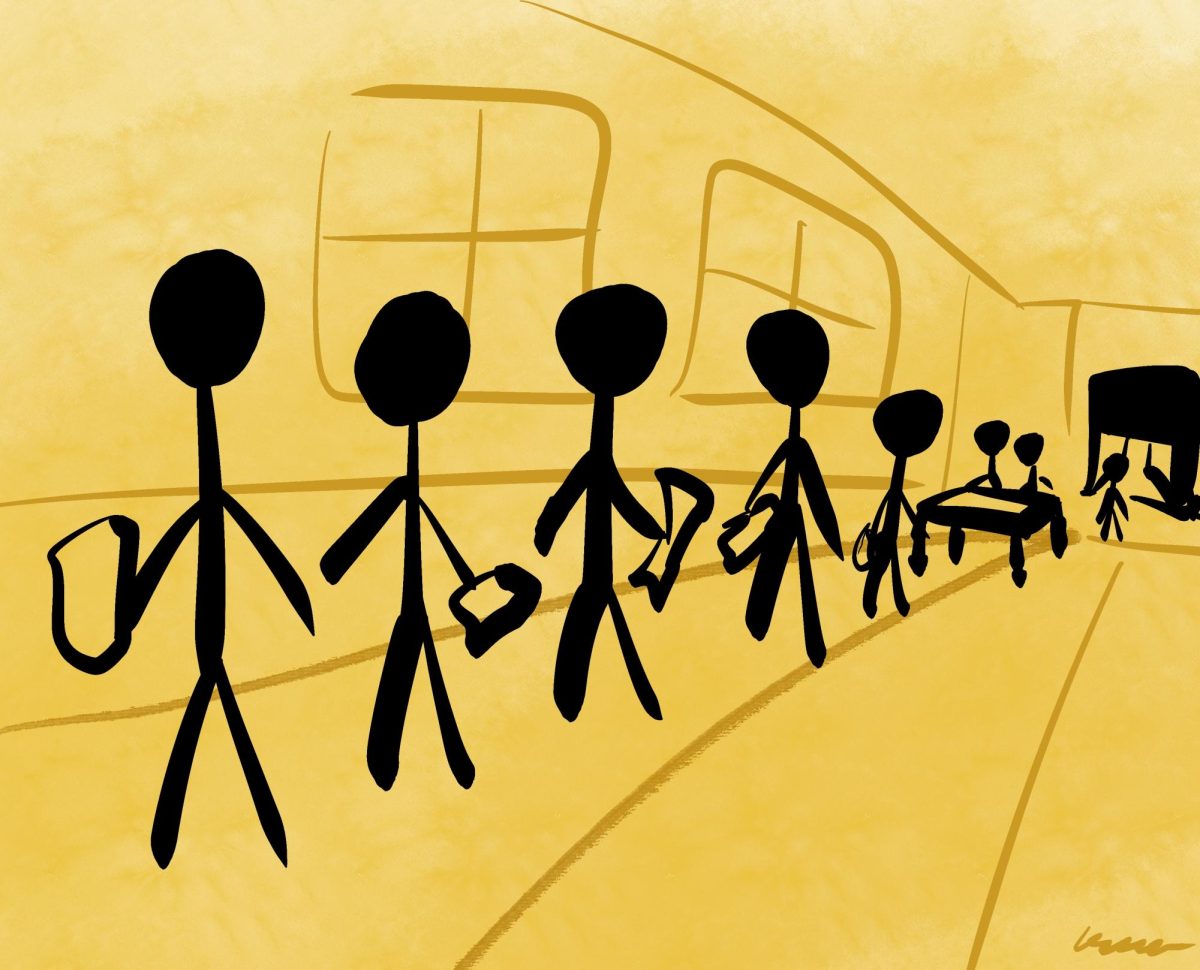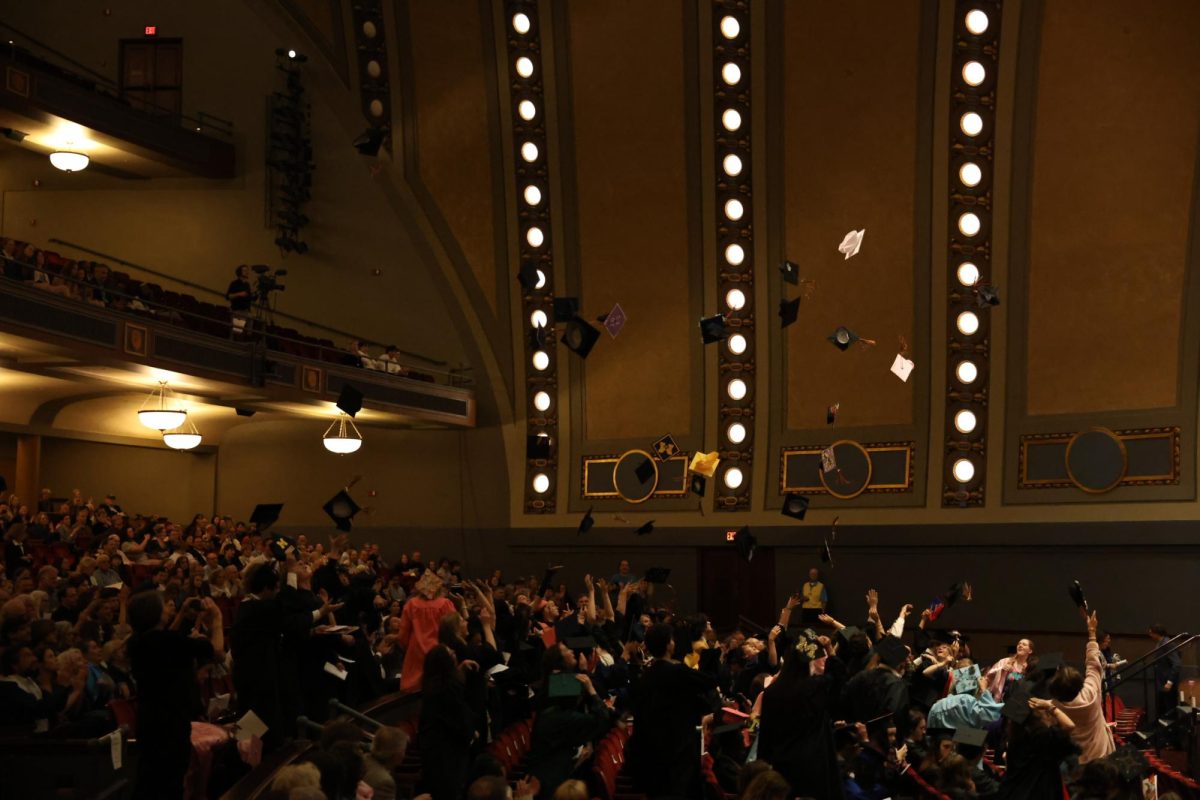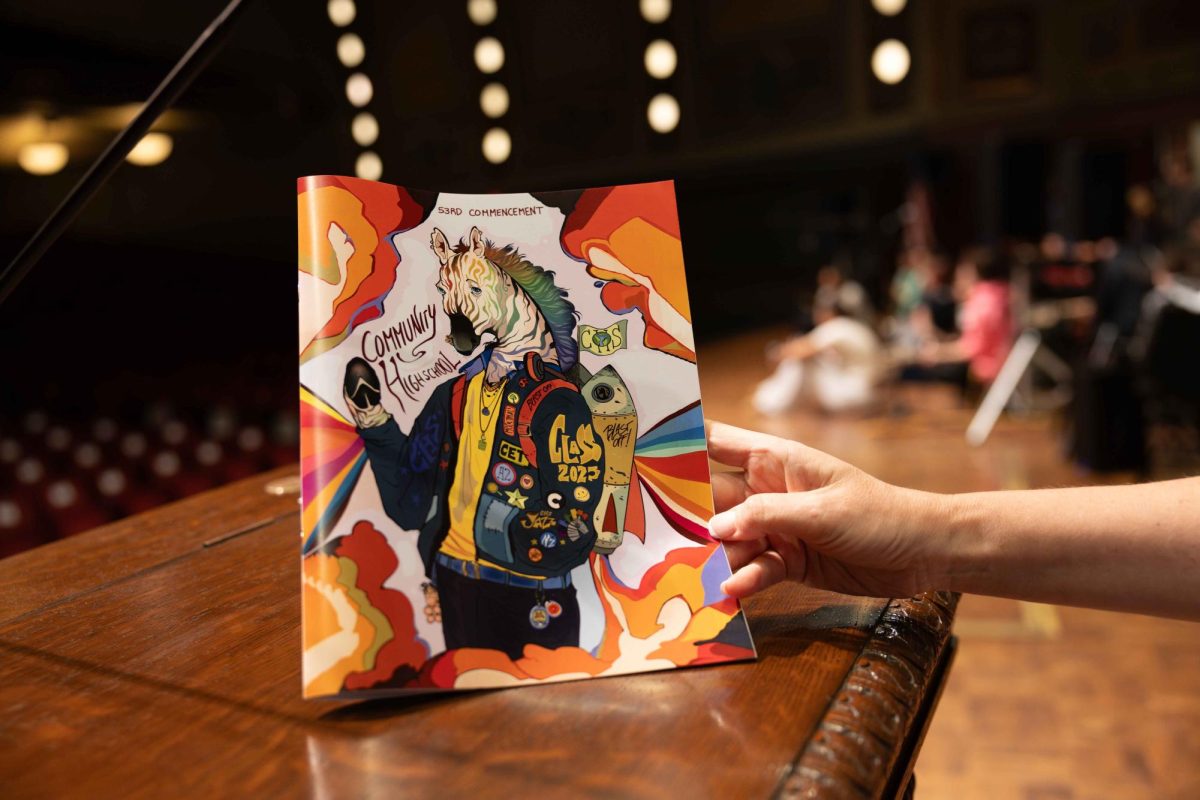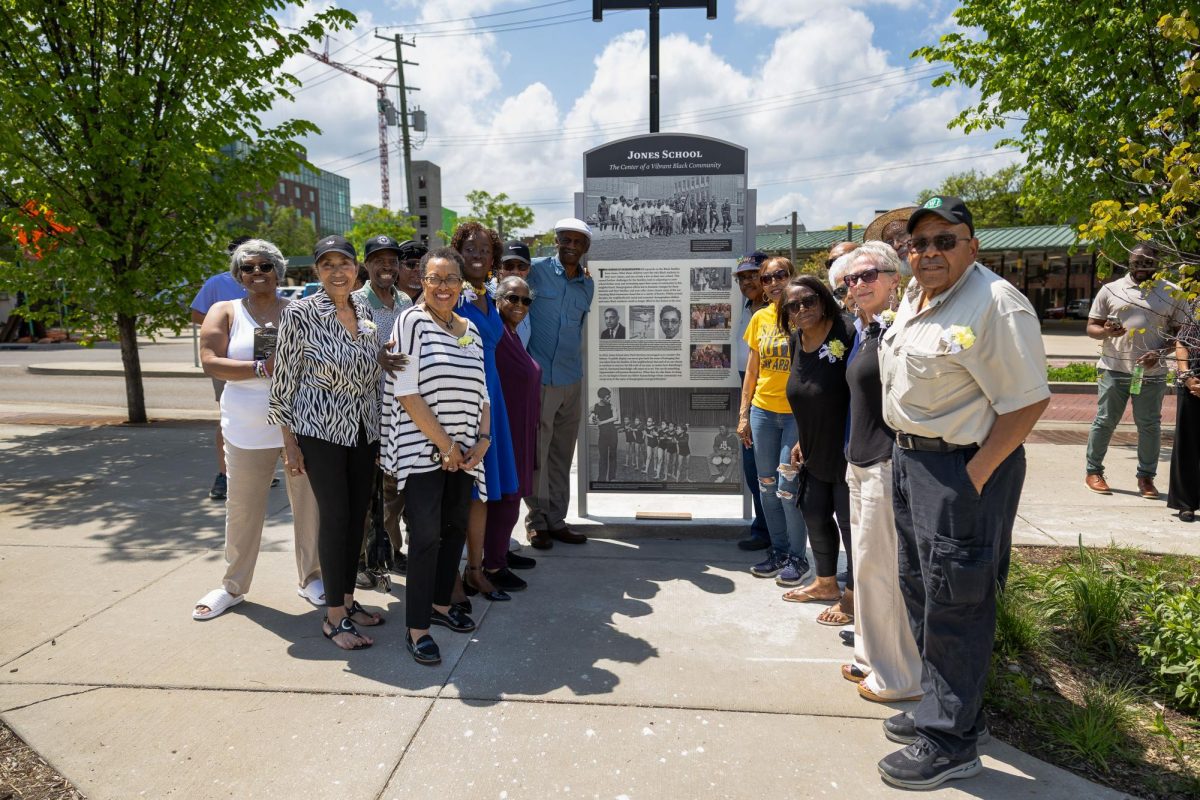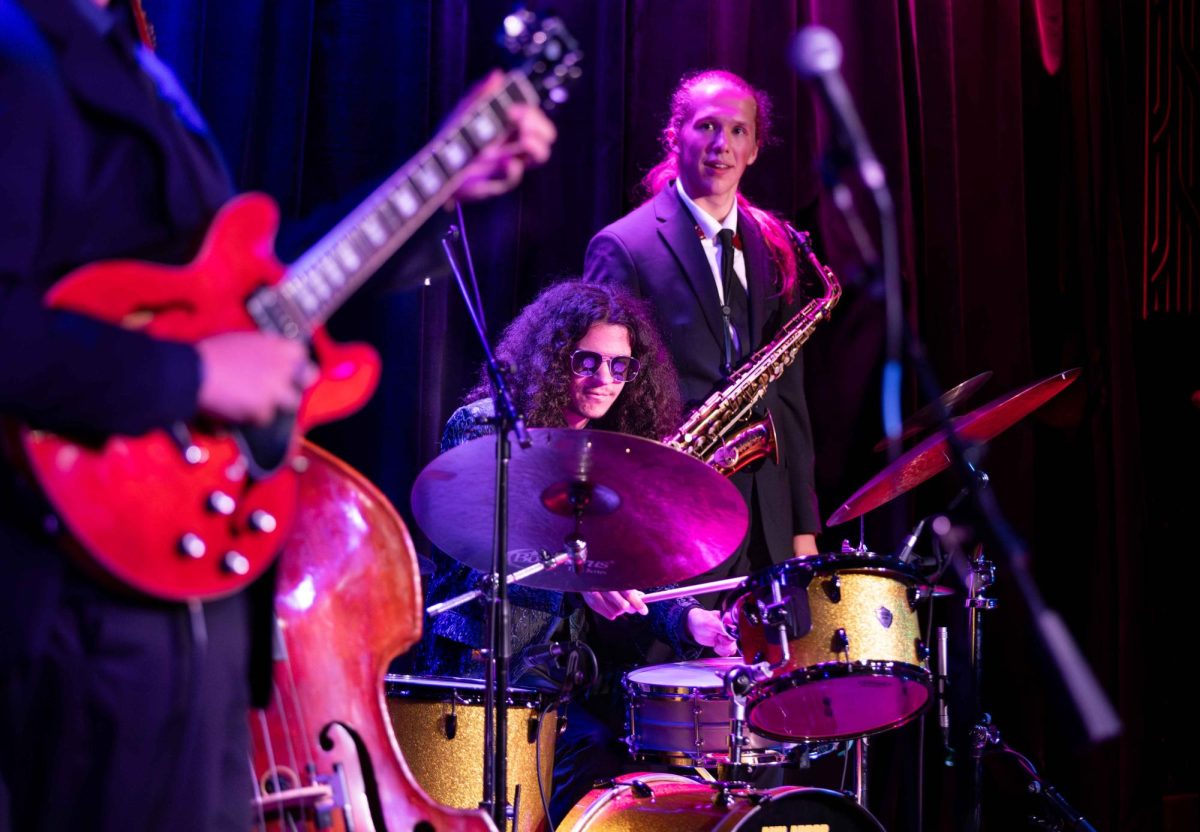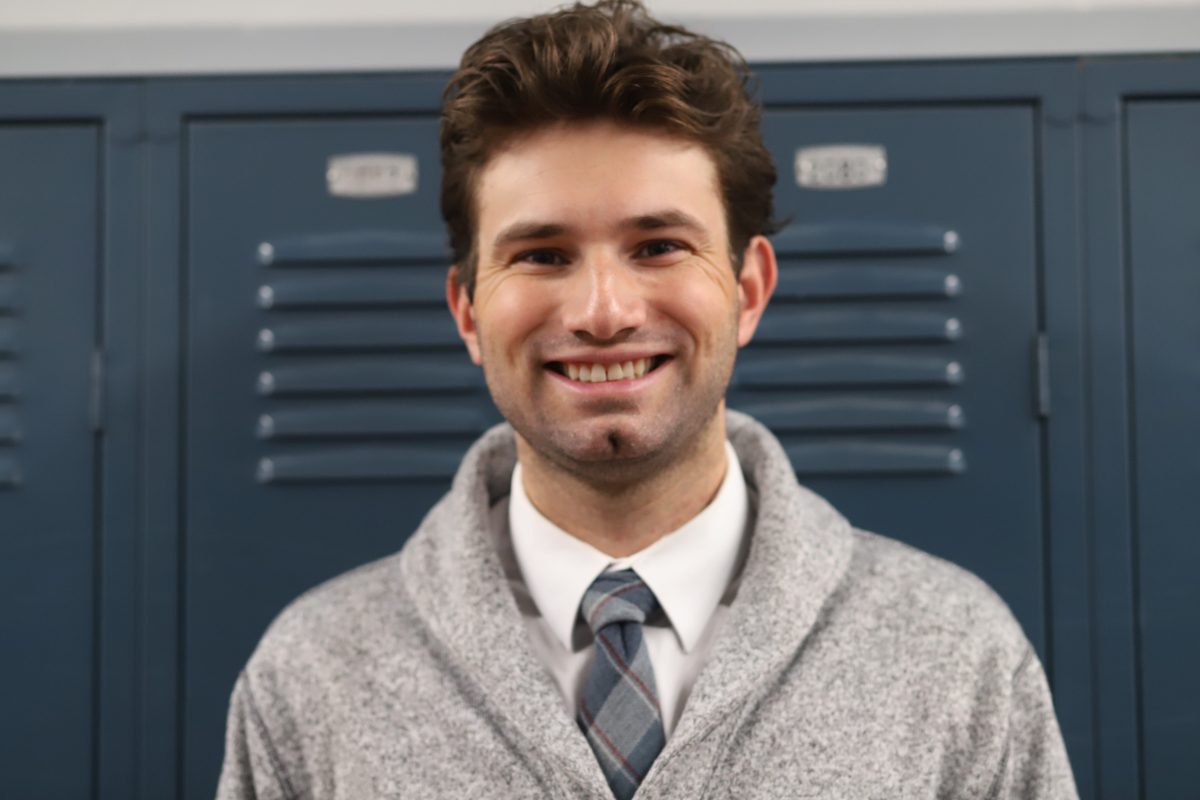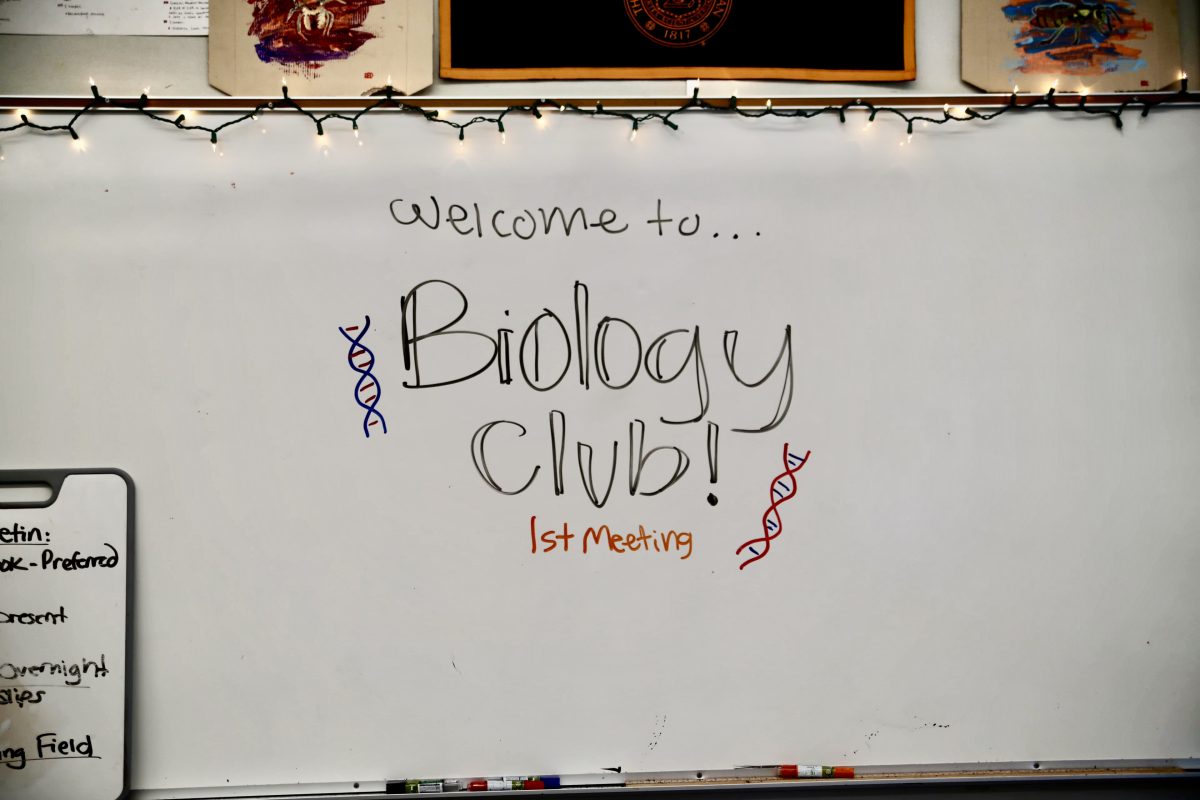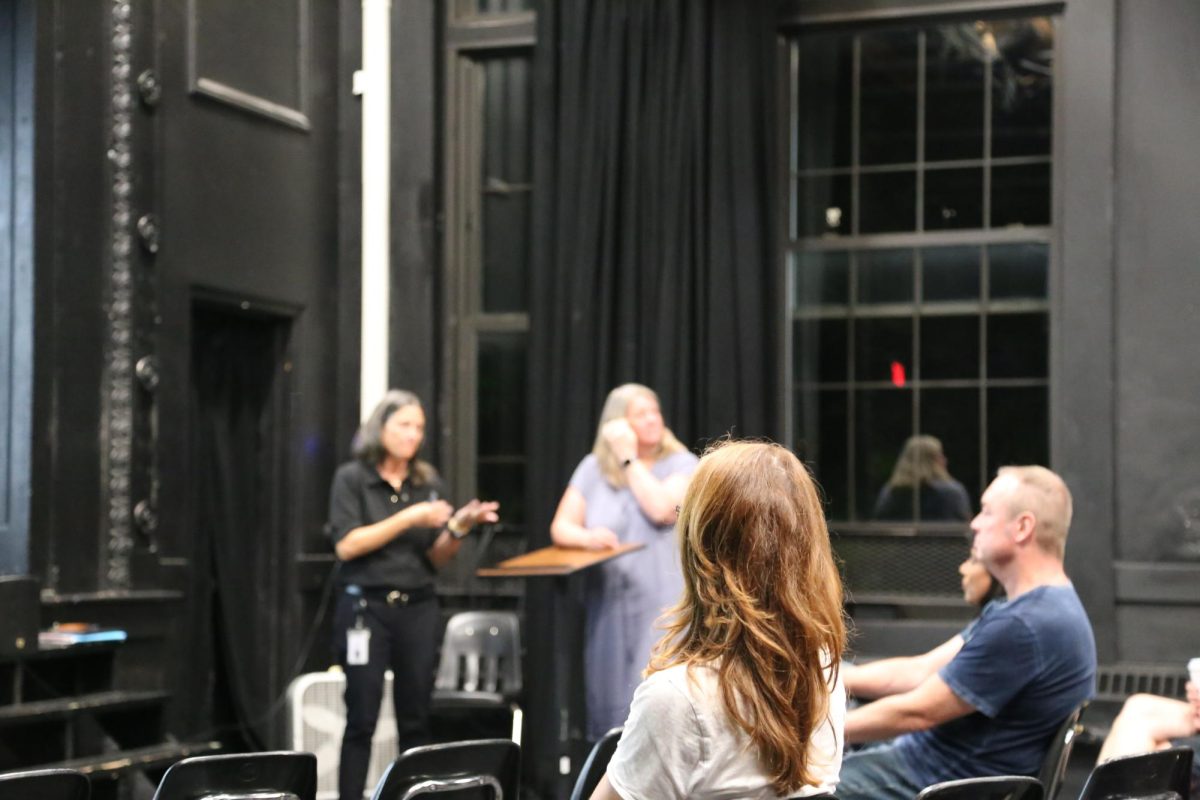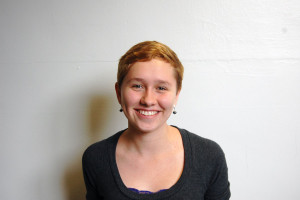One student sits in a desk at Community High School, mouth closed, sitting back and quietly watching the discussion ensuing between other members of the class. On April 19, this student will not answer any questions posed by teachers, will not raise a hand, will not chat during passing time and will not pass notes to friends. In essence, this student will lose the ability to talk for a day.
But this in not a punishment of some sort, or teenage sulk fest brought about by hurt feeling and an argument between friends. This student is simply observing the Day of Silence, a GLSEN-based protest that calls attention to the bullying and harassment of LGBTQ+ teens which happens every day in schools across the nation. A number of students at Community will be observing Day of Silence, some as allies and some as members of the community that continually faces hatred and discrimination.
A junior at Community, Lang Straub, is one of the students who will be refraining from speech on the 19th. Straub, who has been a part of the protest for two prior years, is trying to make a stand against bullying and homophobia. “I find it horrible that LGBT youth or any youth in general are bullied for who they are and treated any different than their peers.”
Straub, who identifies as bisexual, admitted that he has found himself to have been treated differently by various people to whom he came out over the last few years. “I’ve also had too many friends who’ve been bullied for their sexual or gender orientation and for many other reasons, including some which have engaged in self harm and a couple who have even attempted or succeeded at suicide.
Despite its negative connotations of being passive activism, Straub feels that Day of Silence is very effective. “It stands as a very strong symbol of people’s will to stand up to the mistreatment of their peers for no good reason,” he explained.
However, not everyone standing up to harassment and mistreatment of the LGBT community is doing so silently. Chloe Root, the faculty advisor for Community’s Queer Straight Alliance, wishes she could go the day without speaking. Unfortunately, due to the parental backlash that occurred several years ago when a number of teachers did observe Day of Silence with silence, teachers are no longer allowed to refrain from speech.
What is allowed is for teachers in support of Day of Silence to actively advocate for those who are staying quiet. Root did participate during her own high school years, but will now be taking on a different role.
Like Straub, Root believes the Day of Silence is a very poignant form of activism. “I think the main thing is to bring attention to the issue that so many people are silenced because of harassment, threats, violence or the actual social exclusion that happens all the time based on sexual orientation and gender. Anything that’s related to LGBT issues, basically. So, I think it is a really good way to draw attention to those issues and bring it onto the floor for discussion later on.”
Root said that she has been approached by people who misunderstand the point of the day. “[They’ll say] “It’s not a very good form of activism to stay silent all day,” but I think if there are voices that are especially heard in classes that are not heard, can be a really effective way to draw attention to the fact that people are silenced on a daily basis. So, that’s why I support it; it’s a good tool for starting conversations, even if the conversations can usually happen that day.”
Both Straub and Root agree that not everyone has to stay quiet to be a part of the fight against LGBT hatred and phobias. “Having people who are not silent is helpful as they can explain to others what Day of Silence is about, what it stands for, and why many of their friends are silent,” Straub said.
“I think that it is totally up to you. And I think if that is your kind of activism, do it. If it’s not, if it doesn’t make a lot of sense to try and engage in forms of activism that you don’t find effective or that you know you can’t do,” Root explained, adding that was how she felt about activism in general. “I know a few people who were like “Aw man, I’d really like to do that, but I think I would just be making a farce of it because I’m so talkative” or whatever. And I’m like, okay. I think the issue is more whether you’re doing anything or not. Like, if you’re talking about these issues, if you’re active in some way, then that’s great. But if you’re not doing anything, then you might want to examine, what causes you want to speak up about and talk about.”



